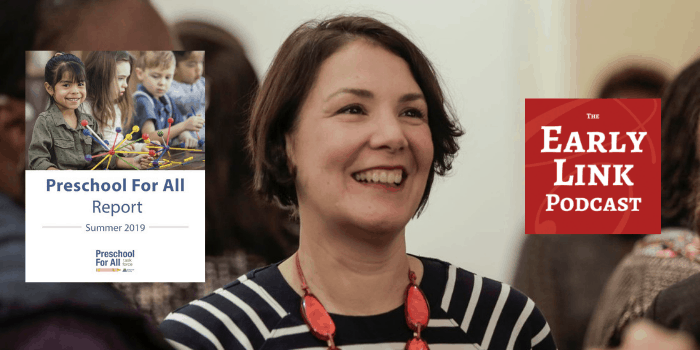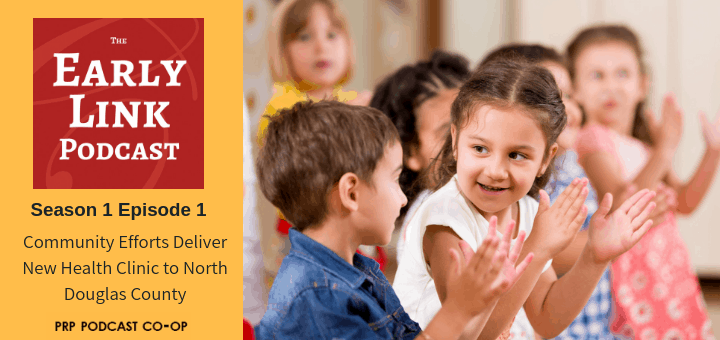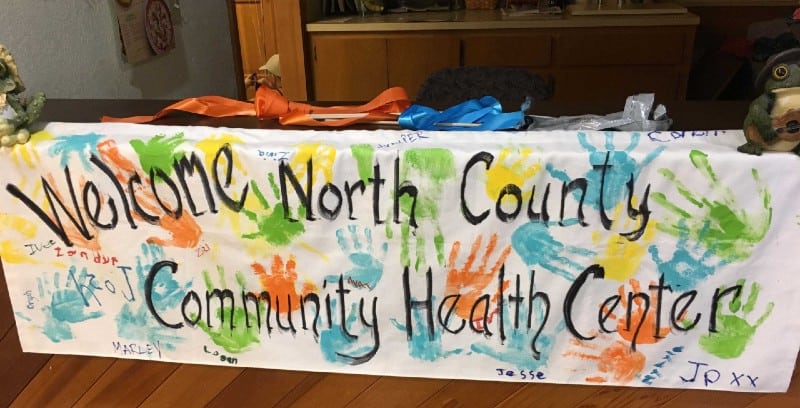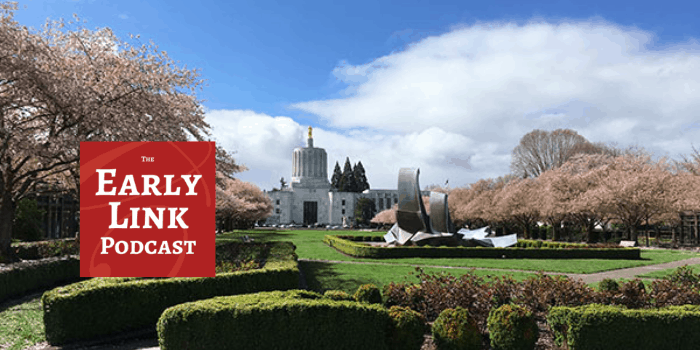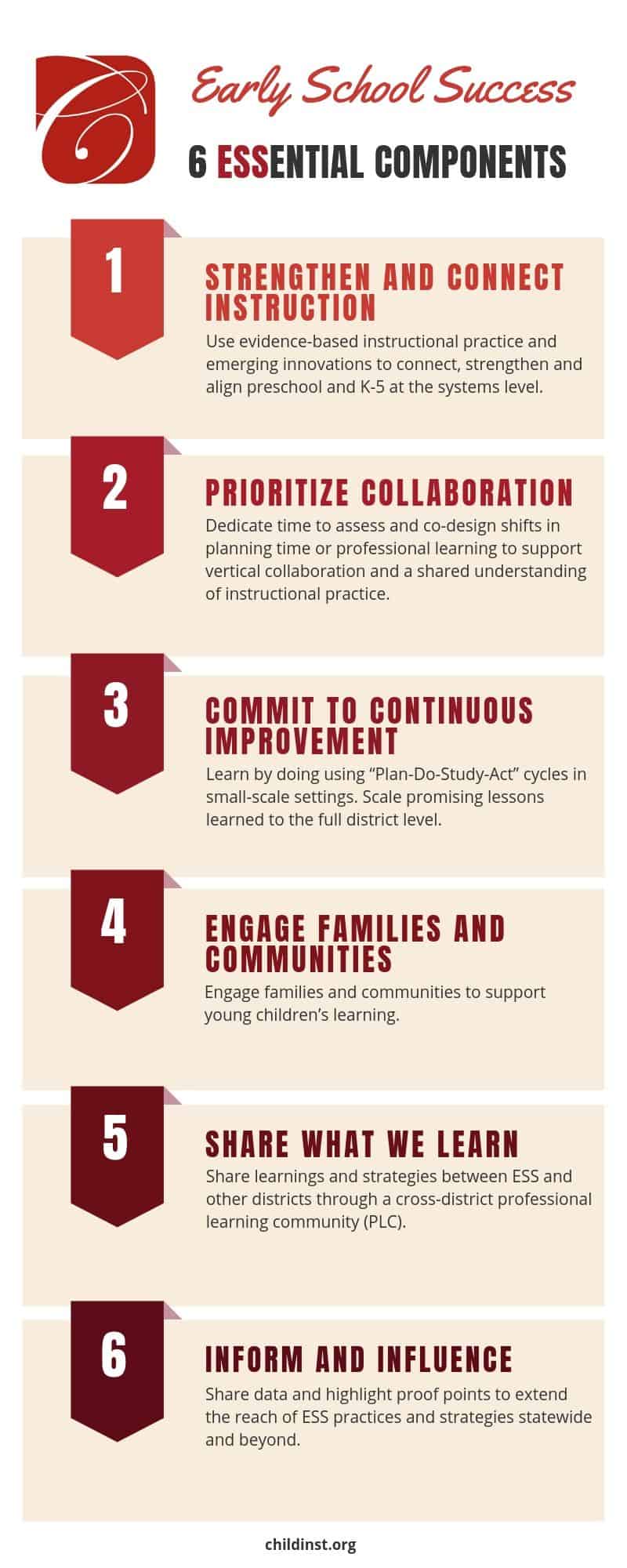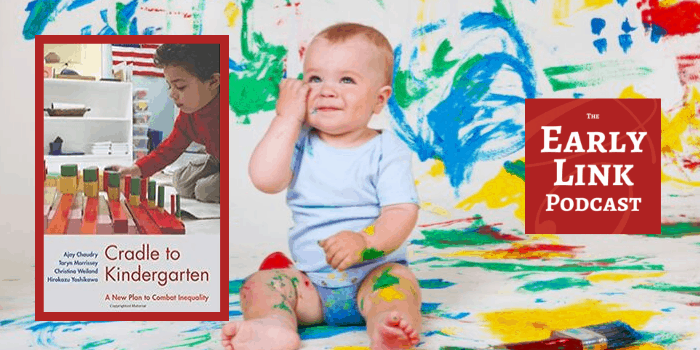
On Effective Preschool with Dr. Christina Weiland

In this episode of The Early Link podcast, we speak with Dr. Christina Weiland, assistant professor at the School of Education at the University of Michigan. Dr. Weiland’s research focuses on the effects of early childhood interventions and public policies on children’s development, especially on children from low-income families. She is particularly interested in the active ingredients that drive children’s gains in successful, at-scale public preschool programs. Her work is also characterized by strong, long-standing research collaborations with practitioners, particularly the Boston Public Schools Department of Early Childhood. Dr. Weiland is also an author of book Cradle to Kindergarten: A New Plan to Combat Inequality.
In this conversation, we take a look at what it would mean for the U.S. to invest in a system that serves children under 5, with high-quality care and preschool programs available to parents who choose to access them. Thus far, Dr. Weiland points out, individual cities like Washington D.C. and Boston have been leading the way on effective preschool programming, but political will across the country is growing to ensure access to high-quality early education doesn’t depend on where you live.
We also discuss the features of high-quality preschool programs that are responsive to the way young children learn and aligned with elementary school. Finally, Dr. Weiland shares her views on the early childhood landscape here in Oregon.

